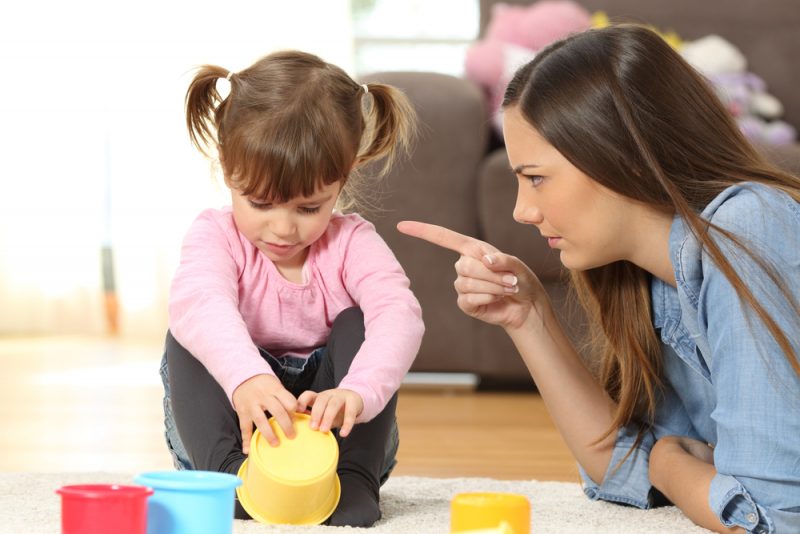
Consider this: From the other room, you hear a sudden crash and then the screech and cries from your daughter immediately following. When you run in to see what happened, you find her teapot in pieces on the floor with your son still holding the handle.
When you ask your guilty preschooler if he did it, he replies, “No. It fell off the table and broke.”
Preschoolers lie or make up stories from time to time. It’s natural to get upset, but it’s probably not what you think.
“The difference between adults and preschoolers is kids this age can’t differentiate between what is real and what is imaginary,” said Dr. Sumru Bilge-Johnson, a child and adolescent psychiatry specialist. “Their world is full of Santa, the Easter Bunny, fairy tales, and they truly believe these things are real.”
Preschoolers aren’t cognitively developed enough to understand the concept of a lie. In this scenario, the boy realized what he did was wrong and truly wished he hadn’t broken his sister’s teapot. Instead, he imagines the teapot fell on its own and that version of the story becomes his reality.

So the next time you catch your child in a lie, instead of getting angry teach him what it means to tell the truth and why it’s important. Explain to him that the truth makes relationships stronger, and you will believe him more if he tells the truth.
“Punishment isn’t appropriate because the child doesn’t understand what a lie is,” said Dr. Bilge-Johnson. “You don’t want to punish a child because he’s playing a game or being imaginative. Punishment will make the child more confused and upset because they won’t understand the consequence.”
Instead, she offers 5 tips to help curb your preschooler’s dishonest behavior and teach him truth is of the utmost importance.
- Rephrase the question so it leads your preschooler to tell the truth. Instead of asking, “Did you break your sister’s teapot?” say, “What happened to it?” Then, he can tell you the story of exactly what happened.
- Offer concrete examples of the truth to teach the concept. Tell your child what you had for breakfast or about events that happened in the day. That’s the truth and they can start to learn the meaning of it.
- Use books to teach your child about lies and why they’re hurtful. When you catch your child lying, you can then reference the story in the book to remind your child why lying is bad. For example, you can say, “Remember what happened to Joey in the book when he lied? His friend didn’t want to play with him anymore.”
- Check your own behavior. Kids are listening and paying close attention to our actions. If parents are telling lies, it confuses kids as to why their parents can do it, but not get into trouble. Like anything, when you’re teaching your child a concept, it’s best to model it.
- Recognize his honest behavior. If your child does something wrong and then actually admits it, praise him for being honest in a difficult situation. This is an important tactic because it encourages him to continue to tell the truth.










